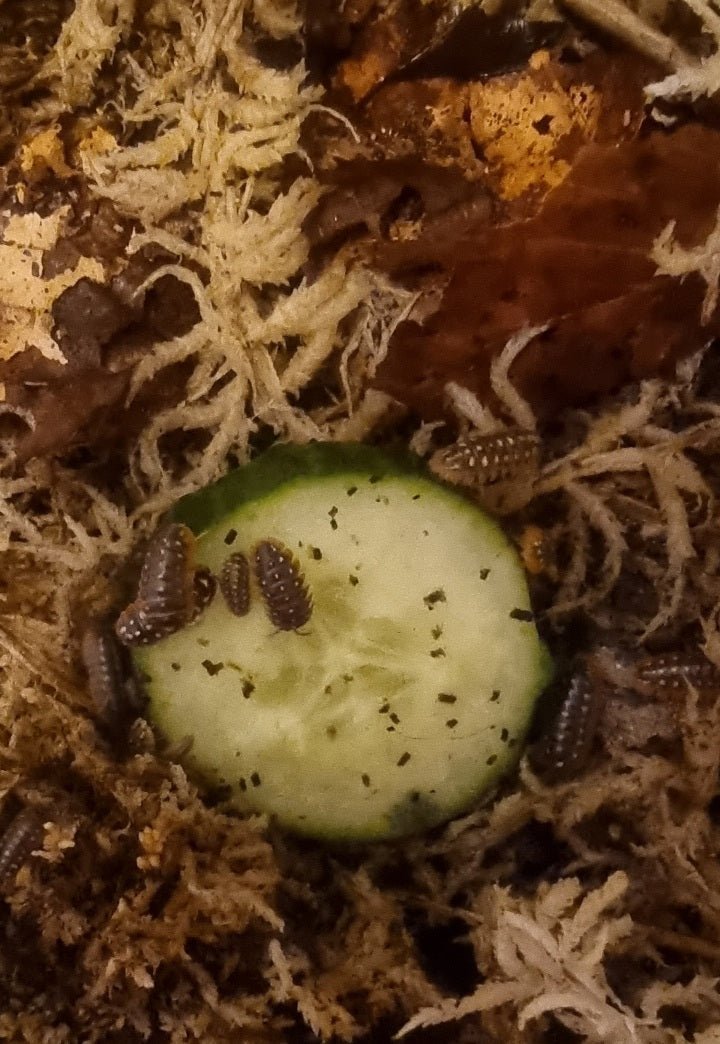What is the Isopod Temperature Range: Understanding Their Heating Requirements
Isopods are small terrestrial crustaceans (aquatic isopods) that are commonly kept as pets or used in scientific research. They are also known as woodlice, pill bugs, sow bugs, and roly polies, and are often mistaken for bugs, but they are actually crustaceans. As with any living organism, providing proper heat requirements is crucial to ensure their overall health and well-being.
In this article, we will discuss the perfect heat requirements for isopods, including popular species such as Armadillidium vulgare and Porcellio laevis.
Temperature Requirements
Isopods are sensitive to temperature changes, and their optimal temperature range is between 68-82°F (20-28°C). Most species of terrestrial isopods, such as Armadillidium vulgare and Porcellio laevis, tend to do well within this range, but some different species may have unique requirements. Temperatures above or below this range can lead to stress, slower growth rates, and even death. Room temperature is generally fine for many isopod species, but if your environment is too cold, consider moving the container to a warmer spot to maintain their health.
It is essential to maintain a consistent temperature throughout the isopod habitat, as rapid fluctuations can also be harmful. If you’re concerned about managing the isopod population in your terrarium or vivarium, it is helpful to understand that overpopulation is rarely an issue.
Using a reliable heating source, such as a heat mat or ceramic heat emitter, is recommended to maintain a steady temperature.
Humidity Requirements
Along with temperature, moisture and humidity are equally important for isopods. They require a moist environment to thrive, and their optimal humidity levels are between 70-80%. Low humidity can lead to dehydration and molting issues, while high humidity can lead to stagnant air and mold growth. Proper moisture levels are key to Cappuccino isopods' health.
To maintain proper humidity levels, it is recommended to mist the isopod enclosure regularly and provide a moist substrate. Adding a water dish can also help increase humidity levels in the habitat. Monitoring and adjusting moisture helps prevent mold and supports a suitable environment.
Light Requirements
Isopods are nocturnal creatures, and they tend to prefer low light environments. Excessive light exposure can cause stress and disrupt their natural behaviour, and terrestrial isopods will often burrow or seek hiding places to avoid bright light.
It is recommended to provide natural light or a low wattage bulb for a few hours a day. This will mimic their natural environment and provide the required light spectrum for plant growth in the enclosure.
To ensure your isopods thrive, it is crucial to understand their heat requirements and provide them with a suitable environment. Consistent and stable temperatures, adequate humidity and moisture levels, and low light exposure are essential factors to consider when setting up an isopod enclosure.
By following these guidelines, you can ensure your isopods remain healthy and happy. Any changes made to their environment, including heat, should be done gradually and monitored closely to avoid any stress or harm to your isopod pets or lab subjects.









